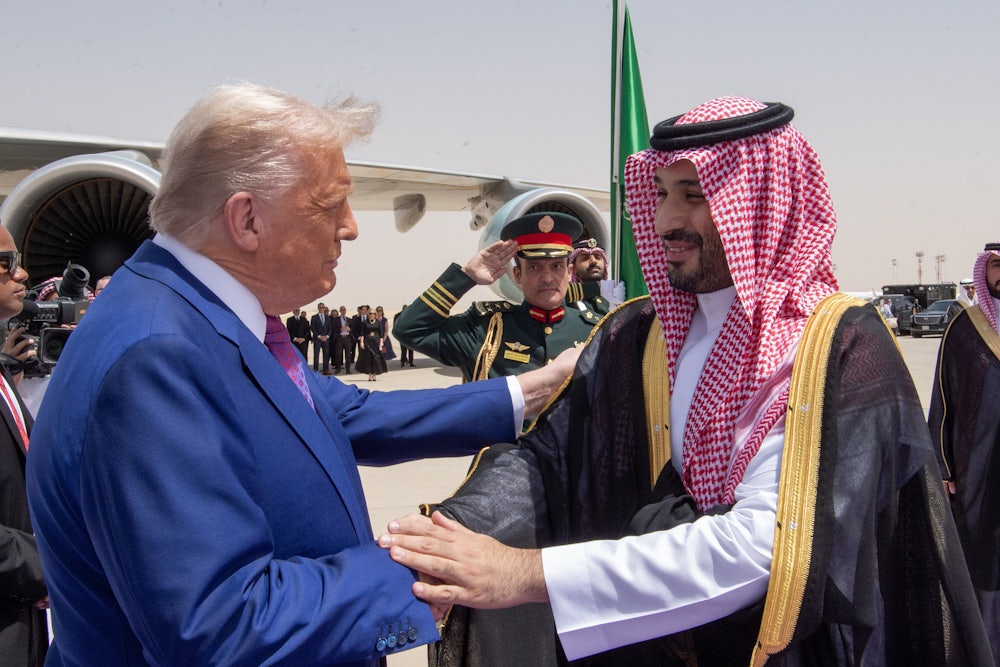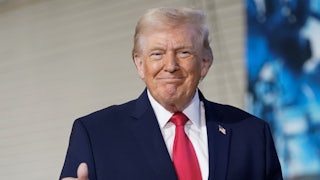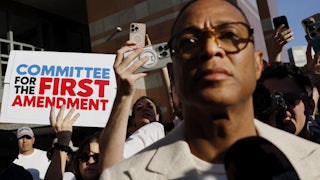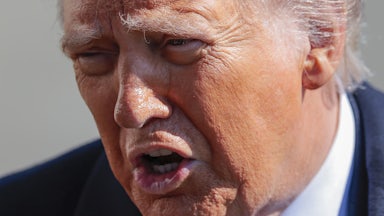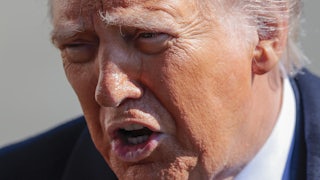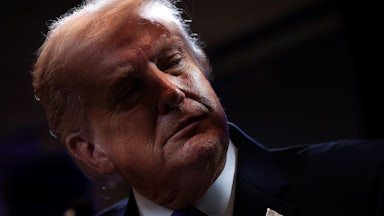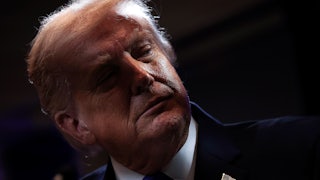At the U.N. Security Council on Monday and in the White House on Tuesday, Benjamin Netanyahu’s diplomatic cul-de-sac and defeat was on full display. A man who claimed to be the savior of Western civilization and a member of the world’s executive committee is now exposed. He is out of antics, out of maneuvering room, out of effective levers, and out of clout, and he suffers from acute credibility deficit. It is self-inflicted, and he eminently earned it.
At the U.N. Security Council, a U.S. draft resolution on the next phases in Gaza’s immediate future—including the establishment of an “International Stabilization Force” and a “Board” that would supposedly govern Gaza, was accepted in a 13–0 vote, with only China and Russia abstaining. Aside from the important fact that this was a policy departure from the Trump administration in seeking a mandate and legitimacy from a body he deeply disdains, the resolution had two significant implications.
First, it further internationalizes the Israeli-Palestinian conflict, complementing the French-Saudi “Recognition of a Palestinian State” initiative from September. “Internationalization” is something Israel has adamantly opposed for many years. A Palestinian state is something Netanyahu vociferously rejects and vows to never accept. He made false claims that the issue is no longer relevant on the international stage, before the Hamas terror attack of October 7, 2023, and the ensuing devastating war in Gaza, explaining that Israel is on the verge of normalizing relations with Saudi Arabia without any reference to the Palestinian issue.
Second, the fact that the resolution was an American initiative demonstrates that the United States no longer accepts Israeli intransigence at face value. After the U.S. recently coerced Israel into a ceasefire it did not want, this seems like a rare willingness by an American government to actually pressure Israel.
On Tuesday, at the White House, a very welcome Trump ally and buddy is receiving a lavish reception. Mohammed bin Salman, MBS in short, is in town. In May 2025, during a visit to Saudi Arabia, his first as president, Trump ceremoniously announced, “Over the past eight years, Saudi Arabia has proved critics wrong,” adding—in a stark departure from a post-1945 U.S. foreign policy tenet—that the days when the United States tells other countries how to govern themselves and what system of government they should have are over.
In return, MBS pledged $600 billion in arms procurement and investments in the U.S. It almost doesn’t matter that it will never invest $600 billion—Saudi Arabia’s oil-tied finances are far from the endless riches people think they are. What matters is that for a transactional Trump, who loves the fealty, the gold, and the marble halls, MBS is far from the pariah he was after the 2018 murder of Washington Post columnist Jamal Khashoggi, or the pariah President Joe Biden promised to make him. In fact, his rehabilitation began with Biden.
Prime on the agenda today is the sale of U.S. advanced Lockheed-Martin F-35 jets. The Saudis are asking for 48 jets, in a deal worth roughly $4.8 billion (depending on the model). Despite Pentagon warnings that the jet’s stealth technology can fall into Chinese hands, Trump said on Monday that he is determined to proceed with the sale.
The Israeli aspect of this is even more intriguing. Israel claims that Saudi acquisition of F-35s will alter the balance of power in the Middle East and erode Israel’s QME: Qualitative Military Edge, codified in U.S. law.
But then Israel contradicted itself. Even by the usual sanctimonious and braggadocious standards of Israeli public diplomacy, the reaction to the U.S. sale of F-35 jets to Saudi Arabia offered a comic intermission. Israel, according to “senior diplomatic defense sources” (it’s always they who come up with the worst nonsense), “will consent to such a U.S.-Saudi deal only if Saudi Arabia normalizes relations with Israel.”
You have to feel for the heavy burden on these senior government sources, having to formulate policy and make decisions for the United States, Saudi Arabia, and Israel all at once. If “normalization” is the issue—something Saudi Arabia repeatedly pledged not to do unless there is a tangible Israeli commitment to a future Palestinian state—then what’s with the “qualitative” advantage? Is it no longer a danger to Israel’s security?
This new reality is not a circumstantial predicament but a direct result of Netanyahu’s reckless mismanagement of relations with the United States. He consistently and crudely alienated Democrats for years, confronted and defied American presidents, managed to upset Republican voters and provoke harsh criticism from major MAGA influencers. Now he has no allies in Washington, no levers to pull, no sway of the kind Saudi Arabia, the United Arab Emirates, or Qatar have.
It is doubtful that Trump knows much about the history of U.S.-Saudi relations or about the meeting that set their tone, between President Franklin Delano Roosevelt and the founder and first king of Saudi Arabia, Abdulaziz Al Saud, known as Ibn Saud. On February 14, 1945, returning from the Yalta Conference with Winston Churchill and Joseph Stalin, FDR met Ibn Saud on the deck of the cruiser USS Quincy in the Great Bitter Lake in the Suez Canal. FDR was already thinking in terms of a post–world war world, assuming that there would inevitably be a fierce competition over spheres of influence between the United States and the Soviet Union following the eventual defeat of Nazi Germany and Imperial Japan.
The meeting centered on two topics. The first was Saudi oil, which the U.S. needed itself and which would be critical for postwar Europe. Second was “the question of Palestine” and the prospects of the establishment of a Jewish state, to which the Saudis objected vehemently. The meeting laid the foundation of the Cold War formula that defined U.S.-Saudi relations: oil for security.
Fast-forward 80 years, and the formula remains as relevant. Instead of real oil barrels, there is promise of investment of hundreds of billions of dollars in oil revenues into U.S. weapons systems, artificial intelligence, and business investments in the U.S. “The question of Palestine” remains on the agenda, just as it was in February 1945, and Saudi is again an ally.
From the Saudi perspective, ironically, the September 9, 2025, Israeli attack on Hamas members in Doha, the capital of Qatar, factors into their current thinking on the U.S. The attack impelled the U.S. to pressure Israel into a ceasefire and gave momentum to the Saudi-French Palestine recognition initiative at the U.N. At the same time, it exposed America’s limited credibility as a security guarantor of its allies.
A livid Trump subsequently signed an executive security agreement with Qatar—short of a defense treaty or pact that requires Senate approval, but a signal to Netanyahu all the same. The Saudis now want a similar deal but on a much broader scale, including a civilian nuclear power development agreement. And there is nothing Israel can do about it but embrace it.
Even if Trump sees the U.N. vote and MBS’s visit as little more than a short respite from the Jeffrey Epstein crisis engulfing him, the two events represent a change in the dynamics of U.S.-Israel relations and a possible shift to Saudi Arabia becoming America’s main regional ally. It is doubtful that Netanyahu thinks he made this happen. But he did.
